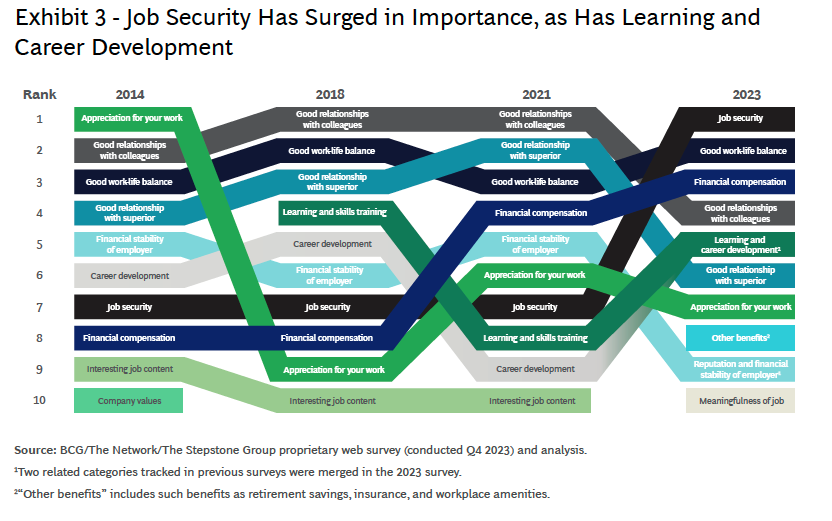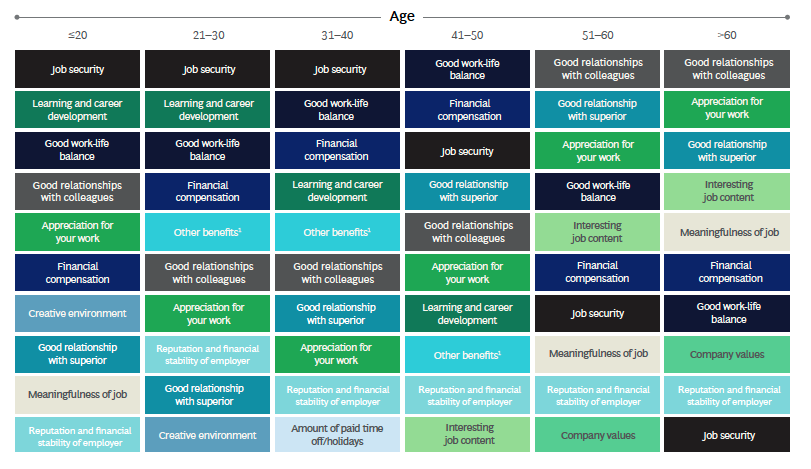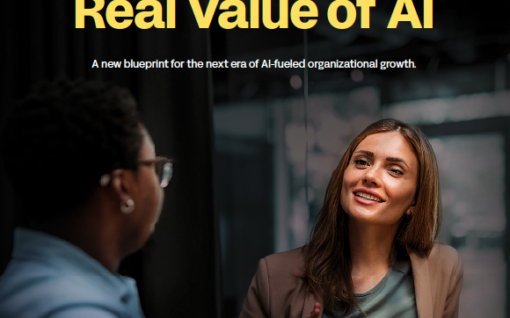Research Digested: How Work Preferences Are Shifting in the Age of GenAI, Boston Consulting Group
Research from Boston Consulting Group shows how work and working preferences are changing for employees. Technological change, gen AI in particular, is putting the focus on skills, learning and career development.
Why read this report?
A part of Boston Consulting Group’s (BCG) ongoing Decoding Global Talent series, this report sets out to understand what workers expect from an employer, what they value most in a job, how they are using generative AI at work and how employers should attract and retain employees. The report provides a snapshot of the changing preferences workers have about work.
About this research
The report includes insights from 150,735 survey respondents across 188 countries.
Standout Stats
What matters most for workers is job security, followed by work-life balance, pay, good relationships with colleagues and learning and career development.

The data shows that the importance of job security and learning and career development is related to technological change and the rise of gen AI. Workers are aware that AI is driving change and that it will affect their longer term employability.
When it comes to recruitment and taking a job, European respondents say they would refuse an attractive job offer if they had a negative impression of the organisation during the interview (68%), they had a bad experience during the recruitment process (47%) or the employer doesn’t offer options to work remotely or from home.
The report features this graphic on how age shapes work preferences. This is a fascinating lens through which to explore the employee experience and how to shape it.

When it comes to using gen AI at work, around 50% of respondents are using it regularly. This rises to 70% for those in more tech related roles and falls by age from 50% usage in under 20s to 28% for 51-60 year olds and 23% for those over 60.
And asked How GenAI will impact their job in the future, respondents say:
- Some of my tasks will change, and this will require some new skills 49%
- My job will not be affected 25%
- My job will be transformed and will require significant reskilling 21%
- My job will no longer exist or demand for my job will significantly decrease, and I will need to reskill for a different job 5%
The good news is that most workers are willing to reskill (57%). And when it comes to learning new skills, European respondents say their top needs are:
- Better understanding of what skills to learn
- More time
- Better availability of learning programs.
Final Word
This is a heartening read for learning professionals. Learning and career development is increasingly important to workers and jobseekers. This is partly driven by concern over the impact of technological change and the speed with which generative AI tools are being adopted. Looking at the employee experience through the lens of the age of workers is also worthwhile. This research shows a wide variation in what matters to workers based on their age. Focusing on learning and career development for younger workers would seem to make more sense, according to this report. Older workers could be pivotal in delivering this as they want more appreciation for their work and good relationships with colleagues.
Report reading time: 20 minutes
Format: PDF
Link: https://www.bcg.com/publications/2024/how-work-preferences-are-shifting-in-the-age-of-genai

